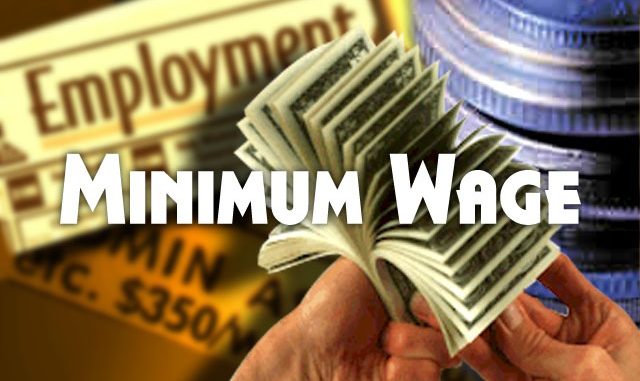
The Federal Ministry of Labour and Productivity recently renamed as Federal Ministry of Labour and Employment is one of the oldest Ministries in Nigeria. It began as a Department of Labour in the then Colonial office in 1932 and developed into a full-fledged Ministry in 1952. The Ministry is established under item 34, Second Schedule of the Exclusive List, 1999 Constitution of the Federal Republic of Nigeria as amended.
The following have served as Permanent Secretaries in the Ministry so far. They are Chief M.A. Tokunboh, Chief S.O. Koku, Chief T.E. Salubi, Mr. E.O. Olowu, Chief Owelle Chikelu, Chief Chukwuemeka Ezeife, Mr. Stephen B. Agodo, Ambassador A.O. Adekunle Olumide, Alhaji Abdallah Z. Hashim, Alhaji S.M. Jega (1994-1995), Mr. Samuel C. Nwokedi (1995-1997), Mr. Daniel O. Oyegun (1997-1998), Mrs. Lois N. Asugah (1998-2000), Ambassador Godfrey B. Preware (January 2000-August 2002), Mr. Ayodeji O. Omotade (August 2002-December 2003), Dr. Timiebi A. Koripamo-Agary (December 2003-June 2007), Professor Oladapo Afolabi (July 2007-November 2007), Alhaji Suleiman D. Kassim (November 2007- December 2008), Dr. Haruna U. Sanusi (December 2008-January 2009), Ambassador Chike Alex Anigbo (February 2009- June 2010), Professor Simon O. Ogamdi (July 2010-January 2011), Engr. Anthony Z. Ozodinobi (January 2011-March 2012), Dr. Tunji Olaopa (March 2012-March 2013), Dr. Clement O. Illoh (March 2013-August 2017), Bolaji Adebiyi (August 2017-June 2018), Mrs. Ibukun A. Odusote (July 2018-March 2019) and William Alo (March 2019-till date)
The following have also served as Ministers or Ministers of State. They are Chief Samuel Ladoke Akintola, (1952), Dr. Emmanuel M. Endeley (1952-1953), Mr. M.T. Mbu (1953-1954), Chief F. Okotie-Eboh (1954-1957), Chief J.M. Johnson (1957-1964), Prince Adeleke Adedoyin (1965-1967), Chief Anthony Enahoro (1967-1975), Major General H. Adefowope (1975-1978), Mr. S.O. Williams (1978-1979), Mr. S.A. Ogedengbe (179-1982), Professor E.C. Osamor (1982-1983), Alhaji Ali Baba (1983-1984), Major General S.K. Omojokun (1984-1985), Vive Admiral Patrick Koshoni (1985-1986), Major General I.O.S Nwachukwu (1986-1987), Alhaji Abubakar Umar (1987-1990), Engr. Bunu Sheriff Musa(1990-1993), Prince Bola Afonja (1993), Senator Francis J. Ellah (1993-1995), Senator Mohammed Uba Ahmed (1995-1998), Dr. Emmanuel Onyemaechi Udogu (1998-1999), Alabo Tonye Graham-Douglas (1999-2000), Alhaji Musa Gwadabe, Alhaji Zannuwa Husaini Akwanga, Dr. Hassan Muhammed Lawal (2004-2008), Prince Adetokunbo Kayode, SAN,(2008-2010), Senator Ibrahim M. Kazaure (2010), Chief Emeka Wogu (2010-2014), Alhaji Kabiru Tanimu Turaki (2014-2015), Senator Joel Danlami Ikenya (2015), Barrister James Ocholi,SAN,(2015-2016), Professor Stephen Ikani Ocheni and Senator (Dr.) Chris Nwabueze Ngige.
The Ministry was created after the start of World War II to coordinate resources for war efforts, with first one and then two Labour Inspectors attached to the Governor’s Office. With growing worker agitation over cost Of living allowances, the Department of Labour was established on 1 October 1942. It was headed by a Commissioner and two Labour Officers, and was charged with dealing with labour movement issues, ensuring the orderly development of Industrial Relations and enforcing protective legislations. The organization grew as the war progressed, with offices opened in the industrial centers of Enugu, Kaduna and Lagos. Later a Ministry of Labour was created in addition to the Department of Labour, and the two were merged on 1 April 1958. After Independence in 1960, the Ministry has grown steadily, renamed the Federal Ministry of Employment Labour and Productivity in 1979 and the Ministry of Labour in January 2007.
The outward-facing divisions the Ministry of Labour are Trade Union Services and Industrial Relations; Employment and Wages and Inspectorate. The Trade Union Services Division formulates policies on trade union organizations and manages disputes and complaints. It also assists in worker’s education, and keeps records on trade unions and their activities. Internally oriented departments are Human Resources; Finance and Supplies; Policy, Analysis, Research & Statistics.
The Ministry is responsible for several parastatals (government-owned agencies): Michael Imoudu National Institute For Labour Studies (MINILS), Nigerian Social Insurance Trust Fund (NSITF), National Directorate of Employment (NDE), National Productivity Center (NPC), National Industrial Court and Industrial Arbitration Panel (IAP).
In the early sixties and seventies it is the Ministry of Labour that employed workers especially artisans and then post the workers to Ministries and government parastatals. As for the graduates, they are employed by the Federal Civil Service Commission. The Ministry of Labour then used to be very powerful. Even trade centres were under the Ministry of Labour.
Since the inception of the Ministry only two Ministers have secured minimum wage for workers. The first was Chief S. Ogedengbe, who served under President Shehu Shagari, while the other is Senator Chris Ngige. The road to achieving the 30,000 naira minimum was not easy. The relationship between the Ministry of Labour and the Nigeria Labour Congress have also not been easy.
If there is one major achievement President Muhammadu Buhari can point to in his first term it is the minimum wage. And no doubt, the credit for this should go to Dr. Chris Ngige. Every Minister of Labour will tell you that negotiations with the labour leaders especially the Nigerian Labour Congress has not been easy. Arm twisting, threat, coercion and other forms of pressure come into play during negotiations.
Sometimes you have to cajole, entrap, decoy, blandish or even manoevre during negotiations in other to achieve a final conclusion. For the degree to which negotiating parties trust each other is a major factor in determining whether negotiations are successful. In the case of the minimum wage, both Dr. Ngige and the Nigerian Labour Congress came to a conclusion. The various state governments have no choice but to implement the 30,000naira wage argument. I pity those that refuse to implement the minimum wage bill signed by President Muhammadu Buhari on April 18 this year.
END

Be the first to comment